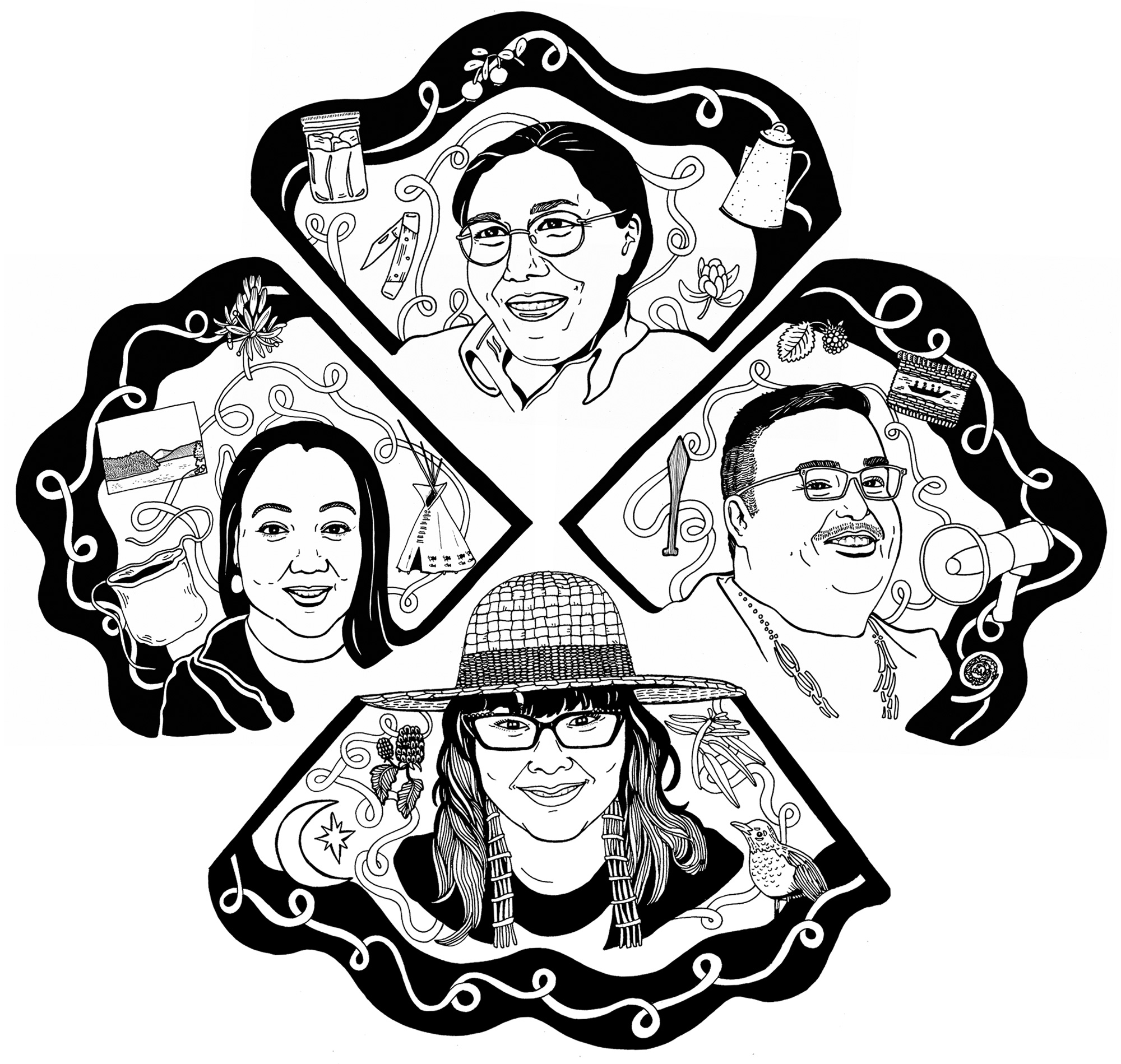
From their home
to yours
From their home
to yours
From their home
to yours
In a series of short talks, Native storytellers share insights into the meaning of a sense of place.
By Quinn Russell Brown | Illustrations by Emma Noyes | March 2021
What does the word “home” mean to you? While the COVID-19 pandemic has forced all of us to spend more time indoors than we used to, the Native American sense of place has long carried a deeply felt, poignant role in life, no matter the circumstances. The UW Alumni Association recently invited a group of Native storytellers for a virtual event to discuss the meaning of sense of place. The event, “Short Talks: Home,” is the latest edition of a series based on stories told by people from the UW community (topics in previous “Short Talks” events have included “Art” and “Love” ).
Standing in front of a Meany Hall living room set adorned with a floor rug, a warm lamp and a leather chair draped in Native blankets, the speakers shared moving stories, poems and declarations. Tyson Johnston, the vice president of the Quinault Indian Nation, welcomed the audience to the event. “It should be known that Indian humor is used as an important tool to not only laugh, but also to teach, to heal and to keep one humble, especially in the face of great evil and hard struggle,” said Johnston, a former UW student.
Casey Wynecoop, assistant director of wǝɫǝbʔaltxʷ—Intellectual House, organized and moderated the event. The planning started well before the pandemic. Rehearsals, like most meetings, moved to Zoom. Spotty WiFi and connectivity issues at times interrupted the process. “It was similar to the issues youth on reservations and from rural areas are facing every day trying to attend online classes,” said Wynecoop, ’16. Nevertheless, the show went on, as Wynecoop, Johnston and three other speakers stayed committed to bringing their stories to the UW audience.
There is no simple definition of home for Native people. “Indian Country is comprised of hundreds of different tribes, nations and communities, and within those, smaller bands and families,” said Wynecoop. “Here in the Northwest, there are 29 tribes in Washington alone.” The communities and tribes represented in “Short Talks: Home” included Tanana Athabascan, Quinault, Spokane and Suquamish. The other speakers included Dian Million, the wonderful poet who has been called the heart and soul of the UW’s American Indian Studies department; Gena Peone, ’08, the archivist for the Northwest Indian Fisheries Commission; and Robin Little Wing Sigo, ’06, the treasurer for the Suquamish Tribe. “Home is central to who I am today,” Peone told the audience. “This land is special because it has been the land of my ancestors. There is a familiarity even when I come to a place that I have probably never set foot.”
The recorded video is available on UWAA’s website through April 4.
Illustrations by Emma Noyes, ’11, Confederated Tribes of the Colville Reservation. Clockwise, from top are Dian Million, Tanana Athabascan; Tyson Johnston, Quinault; Robin Little Wing Sigo, ’06, Suquamish; and Gena Peone, ’08, Spokane.